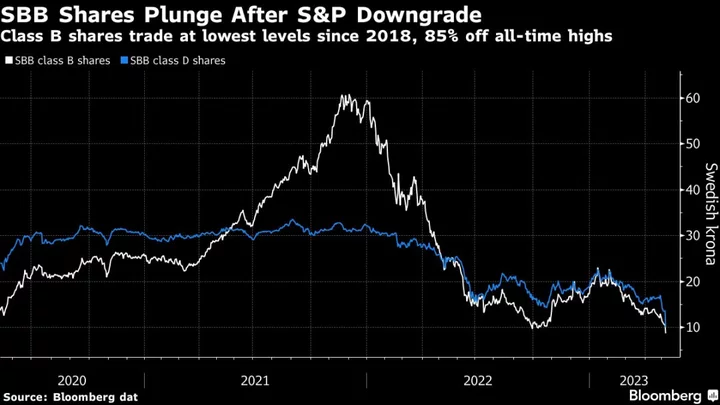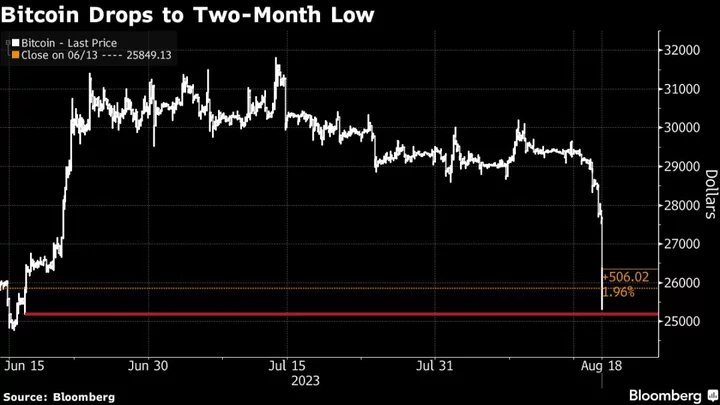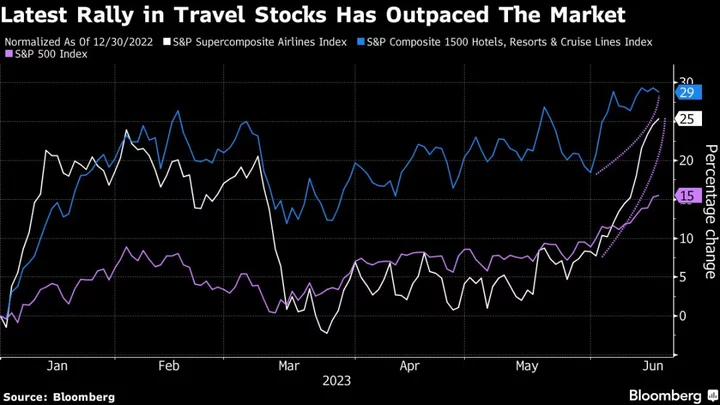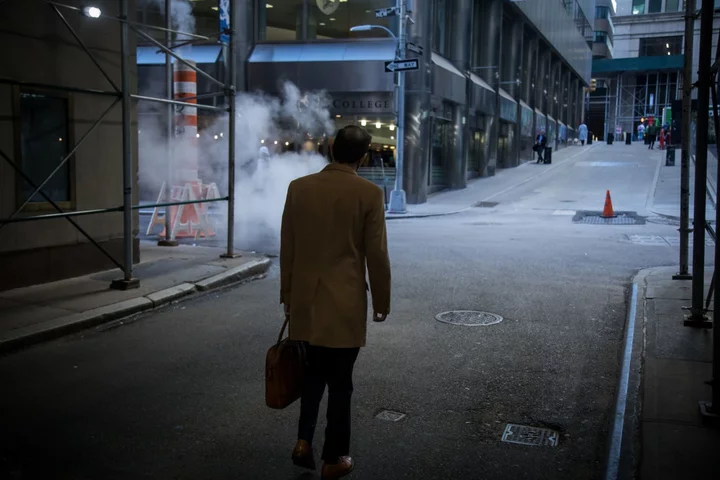European Central Bank President Christine Lagarde said underlying inflation in the euro zone is still strong and wage growth is “historically high.”
Speaking at the International Monetary Fund’s annual meetings in the Moroccan city of Marrakech, she largely repeated last month’s assessment of the economy while stressing that progress is still needed in taming consumer prices.
“Core inflation remains at elevated levels, reflecting the fact that the fading impact of the past surge in input costs is being counterbalanced by rising labor costs,” Lagarde said. “Indeed, employees demanding compensation for the loss in purchasing power amid tight labor markets has resulted in historically high wage growth.”
Inflation should still slow to the 2% target in 2025, she observed, reiterating the collective forecast of officials at the Sept. 14 meeting. That gathering saw a close-run decision to raise interest rates for a 10th consecutive time, with a pledge to keep them high and further increases not ruled out.
“Wage growth is expected to decline gradually, albeit remaining high over the projection horizon, driven by increases in minimum wages and inflation compensation in a context of tight, though cooling, labor markets,” she said.
Revisiting a theme touched on during a panel discussion on Friday, Lagarde suggested that assessing the impact of prior increases in rates remains crucial.
“Downside risks include weaker demand, due for example to a stronger transmission of monetary policy or to a worsening of the international economic environment,” she said.
Lagarde offered a similar view on prospects for expansion.
“Growth could be slower if the effects of monetary policy turn out to be more forceful than expected, or if the world economy weakens further and geopolitical risks intensify,” she said. “Growth could also be higher than projected if the strong labor market, rising real incomes and receding uncertainty boost confidence among consumers and businesses and lead them to spend more.”









